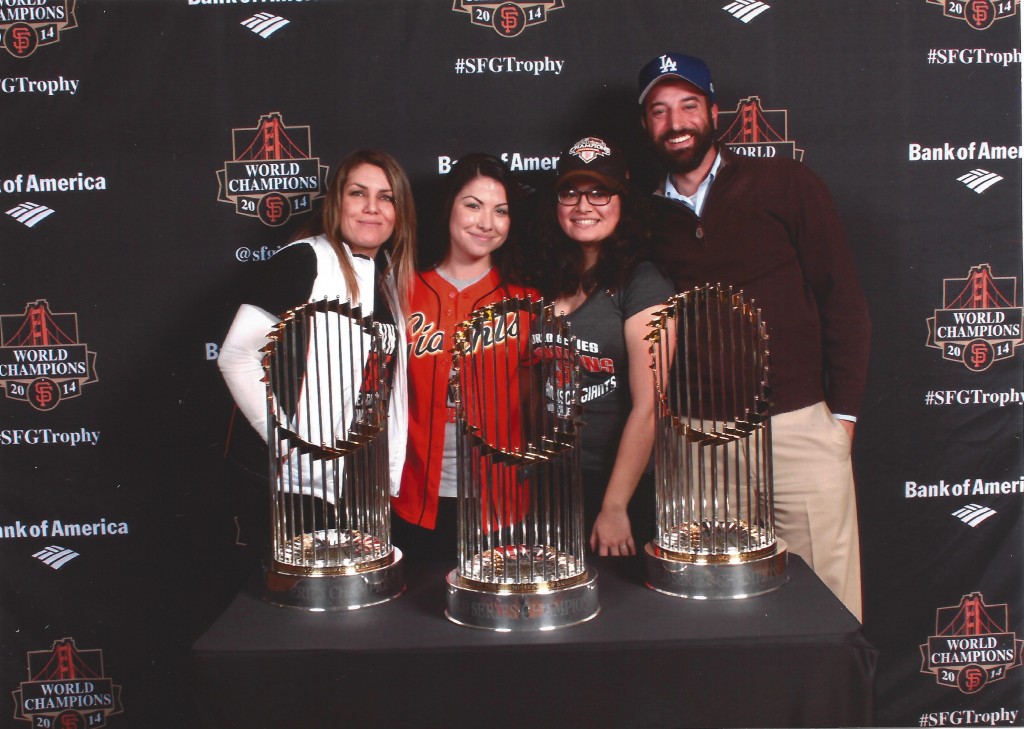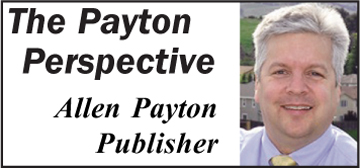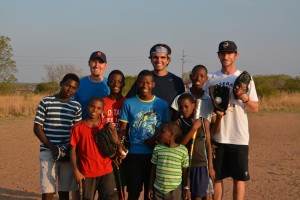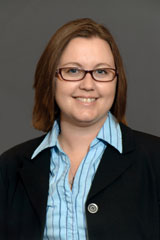Archive for January, 2015
Giants World Series trophies visit Antioch
Wednesday, January 28th, 2015
Richard Pagano, right, owner of a State Farm Insurance agency in Antioch, and his office staff Yolanda Larios, Elisa Tavera, Serena Xavier, enjoy viewing the Giants’ three World Series trophies, during their tour stop in Antioch, on Tuesday, January 27. Richard, with his best “fear the beard” smile, is unfortunately a Dodgers fan. His staff has it right.
By Allen Payton
The San Francisco Giants baseball team’s three World Series trophies from their championships in 2010, 2012 and 2014 were in Antioch on Tuesday, January 27, as part of a tour to Northern California cities.
Antioch was included because it has a Junior Giants program. Hundreds of residents lined up to take photos with the trophies, which were on display at the Antioch Community Center at Prewett Park.
The tour lasts through April 13. For more information click here.
Antioch Council hears good news from Chief Cantando: crime down in Antioch in 2014
Wednesday, January 28th, 2015By John Crowder
The January 27, 2015 meeting of the Antioch City Council included a report by Chief of Police Allan Cantando detailing crime statistics for the year 2014, and a handful of residents speaking out about a proposal to create a downtown event center.
According to Cantando, the city experienced a reduced level of criminal activity in 2014 as compared to the previous year. Total reportable violent crime was down 9.7%, and total property crime was down 5.6%. Only one category of crime, rape, saw an increase. However, as Cantando explained, this increase was not due to an upsurge in the crime, but rather was a result of a new FBI definition as to what acts constitute the crime.
A highlight of the crime report was the amount of volunteer work being done. Antioch Police Department (APD) volunteers worked over 10,000 hours in 2014. Volunteers worked primarily in field services (over 8,000 hours) and records (over 1,500 hours), but also contributed time to investigations and work in professional standards. Cantando said the value of the work done by volunteers was estimated at approximately $235,000.
Discussing an area that has been somewhat contentious at council meetings over the last year, especially when it involved feral cats, Cantando said that Animal Control had received almost 2800 calls for service in 2014.
Cantando also noted that calls for service were relatively flat over the last year, with APD receiving 80,407calls in 2014, as compared to 79,939 in 2013. Response times also remained relatively flat, with response times for Priority One calls in 2014 averaging 10 minutes, 36 seconds compared to 10 minutes, 30 seconds in 2013.
With respect to the number of police officers employed by the city, Cantando said that there were currently 90 full-time positions filled, and that three recruits began the Academy on January 26, 2015. The full report can be viewed as part of the City Council Meeting Agenda, by clicking here. Annual year-to-year Antioch crime statistics and maps can be viewed by clicking here.
Downtown event center backers speak
Not on the agenda, but addressed by four members of the public, was an idea put forward repeatedly at council meetings over the past few months by a group of residents who want to create an event center by combining the downtown Senior Community Center with development of the approximately two-acre lot, known as the old Beede lumber yard property.
Joy Motts, a leader in the effort, read a letter to the council written by her brother, Kerry Motts, Vice Chair of Antioch’s Planning Commission. In the letter, Motts spoke of the historical significance of the Beede site, saying it was, “indispensable as the one site that incorporates all of Antioch’s finest assets,” referencing the views it affords of the Delta, and proximity to the water, downtown shops, and founding location of the city. Motts painted a vivid word picture of their vision for the project, calling it a great idea that meaningfully reflects, “the history and traditions of our town.” The letter concluded by saying that the idea has, “the power to bind people together and bring unity under a goal and a vision that is stronger and more lasting than any short-term gain from selling our citizens’ best asset.”
Lee Ballesteros, who, along with her husband, John, founded and operate the nonprofit Drama Factory in Antioch, also spoke in favor of the event center proposal. Ballesteros quoted mayors of two other cities recognizing the importance of open, recreational space to a community. She said that research shows that high-quality parks, “spur economic development by attracting home buyers and boosting residential property values.” Ballesteros also argued that the proposal for an event center, “written by the people and for the people,” would serve as a “green engine” to “help address nearly every critical urban need from health to housing, to education and environmental justice” and that it would also help to counter sprawl and combat crime.
Wayne Harrison, a 15-year resident of Antioch, and President of the Celebrate Antioch Foundation, also spoke in support of the event center proposal.
“These citizens deserve a chance,” he said.
Alluding to complaints that their proposal has been largely ignored by city staff, he said, “I urge you to give this group the respect that they deserve.”
Event center supporters had an artist rendering of the proposed project available for members of the public to view.
The next regular city council meeting is scheduled for Tuesday, February 10. Meetings are held in the City Council Chambers, located at 200 H Street, next to City Hall, on the second and fourth Tuesdays of the month, beginning at 7:00 p.m. They can be viewed live on Comcast Channel 24 or on the city’s website via live streaming, at www.ci.antioch.ca.us/CityGov/citycouncilmeetings.htm. They are also archived, there, as well.
Payton Perspective: Antioch Mayor Harper oversteps authority, limiting Council Members in getting matters heard
Tuesday, January 27th, 2015He’s been acting unilaterally, implementing an unapproved policy
In California, a separately elected mayor in a General Law City, as we have in Antioch, the mayor has only three more powers than the rest of the council members. Those are to lead meetings, sign documents on behalf of the city and nominate council members and residents to city or regional committees and commissions. That’s it.
Yet, recently it was discovered that Antioch Mayor Wade Harper has been overstepping his authority by implementing a new practice of requiring at least three council members to agree, before an issue any of them bring up, can be placed on a council agenda.
At the end of the January 13th council meeting, during Council Communications, Mayor Pro Tem Lori Ogorchock requested that an item for hiring three more Community Service Officers using Measure O funds be placed on the January 27th council meeting agenda. Harper told her she had to get a consensus of the rest of the council to do so. He also told her to meet with City Manager Steve Duran, first.
Yet, in an email on Friday, January 23, Harper admitted it’s not a requirement.
To my emailed questions of when and why this practice started, how can the council avoid the Brown Act Open meeting law by following it, and where is it in Robert’s Rules of Order, which the Antioch City Council has historically followed, to support such a practice, Harper wrote,
“By stating that a council member needs the agreement of at least three council persons to have an item placed on the agenda we assure that no one Councilmember acts unilaterally. The city manager usually looks for a nod from at least three council members. I was correct in stating that our practice has been to get agreement from at least three councilmembers. A consensus is great, but not required. Recommendation to meet one on one city manager has no Brown Act violations and is standard practice. We as councilmembers meet with the city manager regularly and can ask questions. These are private discussions between individual councilmembers and the city manager. There are times when the city manager will find it necessary to include additional information in his weekly report to the Council, which is posted on the City web site to share to the community.”
The mayor’s approach and thinking were wrong. A council member does not act unilaterally by having an item placed on the agenda. The action occurs when a majority vote of council members.
So by implementing this new, unauthorized practice, Harper has actually been the one acting unilaterally. He has been preventing each of the council members from properly representing the people who elected them, by placing a matter of interest or concern on a future council meeting agenda for discussion by both the council and public, with a possible vote by the council.
The results of such a practice are it stifles debate and puts any one council member at the mercy of a majority voting block to accomplish what they were elected to do and get things done while in office. Here’s the kicker, until I had learned about this two weeks ago, it appears that no one questioned the practice, including the other council members, two of whom have only been serving since 2012 when Harper was elected Mayor. So, they’ve all been limited in their ability to properly represent “we the people” during that time, most likely unknowingly.
Who came up with this new practice – because it was never put into practice in the previous 18 years of our city’s history – and how long it has been followed, since Harper was elected mayor is unknown, as Harper, Duran and Nerland failed to answer that question after three emails were sent to them all. But, it appears this practice has been going on for the two years he’s been mayor, and without a vote of the council to approve it as a resolution or policy.
Antioch City Clerk Arne Simonsen, who is one of the city council’s parliamentarians, as is City Attorney Lynn Tracy Nerland, agreed to review the council’s votes over the last two years since Harper was elected mayor and confirmed that there had been no vote on the practice.
Previous mayors and council members agree that this practice was new, under Harper.
In an email response from Simonsen, he stated “During my 8 years on the Council, Mayor Freitas allowed any council member to request an item to be placed on a future agenda. Then it would be up to the Mayor and City Manager to determine when it would be best to put in on a future agenda.” Harper, Duran and Nerland were all copied on his email.
In conversations with the last three mayors that have served Antioch, both Jim Davis and Don Freitas said they were surprised by the new practice. Davis called it ridiculous. Both of them used the approach that any council member could propose an agenda item and it was up to them when meeting with the city manager to determine, based on time management and proper prioritization of issues, when to place it on a council meeting agenda.
The third former mayor, current Councilwoman Mary Rocha, said she couldn’t remember what the practice was when she served in the position from 1996 to 2000 and suggested I contact the League of California Cities.
However, I served on the council with Rocha for the first two years of her term as Mayor and can tell you the practice was the same then and during all four years of my term, as under Davis and Freitas. Both of them were elected in 1998 and served during Rocha’s final two years as mayor. Freitas stated the practice was the same during those years, as well.
I contacted the League of Cities to find out if there is a standard practice by city councils, throughout the state, for council members placing items on an agenda. But there is not.
Eva Spiegel, Communications Director with the League wrote in an email, “I checked with our general counsel again and he says that he is not aware whether there is a standard practice for California cities – it likely varies from city to city, and certainly a city council can change what the current practice with a majority vote.”
However, again, the city council never took a vote to approve this new practice.
So, the mayor is correct in his explanation that it’s not required, unless and until it’s put on the agenda and a majority of council members vote to approve it, which is rather ironic. But, as of Monday night, Harper had not yet responded to my last email to him on the subject, sent last Friday, asking him since a consensus wasn’t required “then why did you tell Lori she had to achieve that before having her item placed on the agenda?” and “What are you going to do to rectify this situation and inform the rest of the council?”
When reached for comment, Ogorchock said she had not heard from the mayor about the issue, as of Saturday. Calls to both Council Members Monica Wilson and Tony Tiscareno, asking if they were aware this practice was not authorized and not a requirement, went unanswered, on Monday.
Hopefully the mayor will let the council members know at Tuesday night’s council meeting.
Former Antioch student, Boston Red Sox pitcher helps South African orphans through baseball
Monday, January 26th, 2015“For to be free is not merely to cast off one’s chains, but to live in a way that respects and enhances the freedom of others.” – Nelson Mandela
By Michael McCarthy
My name is Michael McCarthy. I am a pitcher with the Boston Red Sox organization and a former Black Diamond Middle School student, in Antioch. I am part of a group called Baseball Miracles that helps underprivileged youth around the world grow through the game of baseball.
Baseball Miracles spent five day in Pretoria, South Africa, last fall where we worked with youth ministries to provide baseball instruction and equipment to the orphaned children of the region. Many of these children are orphans due to the AIDS epidemic of South Africa that has resulted in more than 2.4 million orphans across the nation.
More than 200 children received their very own baseball glove and baseball to keep as a gift, along with instruction from baseball professionals throughout the baseball ranks within the United States, including former Major League pitcher Virgil Vazquez, White Sox Hall of Fame Scout John Tumminia and Boston Red Sox Scout Jared Banner (a list of the people involved is in the link below).
We also hosted an All-American baseball lunch for the children that included hot dogs, peanuts, Big League Chew Bubblegum, sunflower seeds and singing “Take Me Out to the Ballgame!” This all comes at no cost to them and is created by financial and equipment based donations by generous donors across the nation that have a love for baseball and philanthropy.
Baseball Miracles is a group of baseball professionals that have a strong knowledge of the game and a desire to help make the world a better place through the game of baseball. We have come together to create a charity that can help spread the goodwill of the game around the world.
Spanning continents, ethnicity, race and gender, we use baseball as a sport of unification and a means to make the world a better place.
Many of us have been incredibly blessed to play the game of baseball as children and learn many of the life lessons it has to offer. Words like integrity, team work and work ethic are among the most commonly used by the group, making baseball truly a classroom on grass. We receive no financial benefit and for most of us there are significant out of pocket expenses that go along with each trip.
Roster: www.baseballmiracles.org/about-us.html
Past trips include: Dominican Republic, Ireland and Pine Ridge Indian Reservation of South Dakota.
Future International trips include: Israel, Malawi and Kenya.
Future local trips include: Frozen Ropes Clinic in New York and Challenger leagues across the nation.
Publisher’s Note: For more information about Michael McCarthy, visit www.soxprospects.com/players/mccarthy-mike.htm.
Water Board appoints new member to represent Antioch, East County
Monday, January 26th, 2015
On December 17, 2014, the Contra Costa Water District (CCWD) Board of Directors unanimously approved Connstance Holdaway to fill the Board vacancy left by the passing of Director Karl Wandry. Holdaway participated in her first Board meeting representing Division 5 on January 7, 2015. The Division 5 seat will be up for election in November 2016.
Holdaway lives with her family in Oakley and currently works as a paralegal in Oakland. She will represent residents in most of Antioch and Oakley, and parts of Brentwood. (see Division 5 map, CCWD Division5 map)
CCWD received applications from eleven candidates, and from those, selected six individuals for interviews conducted at the December 10 meeting. Seven Antioch residents applied, including Richard Hobin and Josuwa Bernardo, who made the final round, as well as Dennis Gonden, Angel Luevano, Lamar Thorpe, Julian Isham and Mark Foley. At their December 17 meeting, the Board appointed Holdaway to represent Division 5.
“Board members agreed that Connstance will uphold the Board’s commitment to represent the needs of our customers and provide high-quality water service,” said CCWD Board resident, Joseph L. Campbell.
Holdaway is a 2008 graduate of Cal State Hayward (now East Bay) in Criminal Justice Administration, and received a certificate in Paralegal Studies from JFK University in 2011. She is a former Manager for Safeway in Clayton and has been a Team Parent since 2012 for the Delta Youth Baseball & Softball League.
All applications and documents related to the selection process were made available for public review on the website and at the District offices.
For more information visit www.ccwater.com.
Poll workers needed for Special State Senate Election
Monday, January 26th, 2015Any eligible Contra Costa resident can volunteer
Contra Costa County is in need of civic-minded men and women ages 16 and older to serve as poll workers for the March 17, 2015 Special Primary Election and May 19, 2015 Special General Election.
The election for the vacant seat in the 7th Senatorial District includes much of Contra Costa County, including Antioch and the rest of East Contra Costa, Lamorinda and San Ramon Valley areas, Concord, Walnut Creek and Clayton. Although the election is not countywide, poll workers may live in any part of the county. Bilingual poll workers (English/Spanish, English/Japanese, English/Korean, English/Tagalog, English/Chinese, English/Vietnamese and English/Hindi) are especially needed.
“There is no better way to serve your community, nor a more important part you can play on Election Day, than to be a poll worker,” said Joe Canciamilla, Contra Costa Registrar of Voters. “It is our poll workers who serve to keep our voting process open, accessible, and fair.”
No prior experience is necessary and training is provided. Poll workers receive a stipend of at least $125 for their service, which includes attending a two-hour required training and working from 6:00 am to 9:00 pm on Election Day.
Serving as a poll worker does not have any bearing on Social Security or unemployment status, according to state law.
Poll workers don’t have to be politically active or belong to a political party. Poll workers are required to remain neutral while working on Election Day.
Those interested in being a poll worker must be registered to vote in California, or a permanent resident in the United States, according to state election law.
For more information, visit www.cocovote.us. To apply, email eo@vote.cccounty.us or call the Elections Division at (925) 335-7873.
Transportation Commission seeks to fill vacancies on Advisory Council, one from Contra Costa, one at-large
Monday, January 26th, 2015OAKLAND, Calif., – The Metropolitan Transportation Commission – the Bay Area’s transportation planning, financing and coordinating agency – is recruiting interested Bay Area residents to fill three vacancies on its Policy Advisory Council. In Contra Costa County, there is an opening for an individual representing disabled interests. In Santa Clara County, the vacancy is for an individual to represent either the economy or the environment. And the third vacancy is an at-large seat, to be filled by an individual representing either the economy or the environment from any of the nine Bay Area counties. The Council meets the second Wednesday of the month from 1:30-3:30 p.m. in Oakland, and advisors are reimbursed for their transportation to and from the meeting.
Created by the Commission in November 2009 to advise MTC on transportation policies in the San Francisco Bay Area, the Policy Advisory Council incorporates diverse perspectives relating to the environment, the economy and social equity. The Council advises MTC on a range of dynamic topics, including:
-
Regional planning efforts linking transportation, housing and land-use plans to reduce greenhouse gas emissions.
-
Public transit service productivity improvements to produce more efficiency from the region’s existing transit investments.
-
Pursuit of new revenues to support a transportation system that better serves all Bay Area residents.
“The Commission wants and needs to hear various viewpoints when making transportation policy and investment decisions,” said MTC Chair Amy Rein Worth. “Incorporating different perspectives enhances our decision-making process. The Policy Advisory Council helps the Commission to improve mobility for all Bay Area residents.”
Applications for the three vacancies will be accepted through February 9, 2015. No specific educational background is needed for most seats – just a background in the specific application category, and an interest in transportation and how it affects residents in the nine Bay Area counties. Experience working on public policy issues or community-related issues is desirable. Appointed advisors are expected to attend monthly meetings at MTC’s offices in Oakland and will serve through the term ending in July 2017. While positions are voluntary, advisors do receive a small stipend for their attendance at certain meetings.
MTC’s appointing Commissioners will review the applications, and the full Commission is scheduled to approve the selections in March. The selected applicants will attend their first meeting on April 8, 2015. To apply for a vacant position or to learn more about the Policy Advisory Council, visit www.mtc.ca.gov/get_involved/advisory or call (510) 817-5757.


























